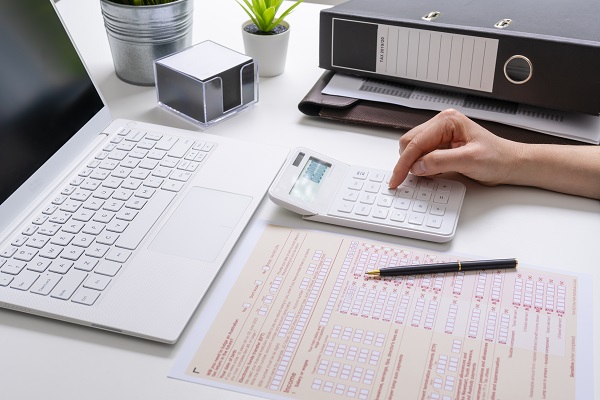Nail your deductions this tax time

One thing’s for sure, as a tradie you work hard for your money. Whether you’re on-site for a boss or you run a business, it’s good to know what you can claim this tax time.
Whether you are on the tools or in the office, there have been a few changes since last financial year to be aware of.
Racking up the kilometres
Firstly, the cents per kilometre method for claiming car expenses has increased from 72 to 78 cents per kilometre in the 2022-23 income year.
You can use this method if you are an employee, sole trader or in a partnership – where at least one partner is an individual. This method is based on a set rate for each kilometre you travel for work-related use and allows you to claim a maximum of 5,000 kilometres per car, each year.
Remember, if you use this method, the 78 cent per kilometre rate covers all your vehicles running expenses. This includes registration, fuel, servicing, insurance, and depreciation – so you can’t claim these costs separately.
Know the (car) limit
If you’re running your own business, the car limit has also increased to $64,741 for the 2022-23 income year. The car limit is the cost you can use to work out the depreciation of passenger vehicles that are designed to carry a load of less than one tonne and fewer than nine passengers, excluding motorcycles or similar vehicles.
Nailing your work from home deductions
Lastly, if you’re an employee who works from home, or a business who operates from home (even some of the time), and you want to claim work from home expenses. There have been changes in the methods to calculate these expenses.
The fixed rate has increased from 52 cents to 67 cents per hour worked from home and no longer requires you to have a dedicated home office space. This change applies to the 2022-23 income year.
This method covers your electricity, gas, stationery, computer consumables, internet, and phone usage. You can also separately claim a deduction for expenses not included in the hourly rate, such as the decline in value of depreciating assets – such as a laptop or office furniture.
As for the records you need to keep for your work from home deductions, these have also changed. You can find out everything you need to know at ato.gov.au/home.
The three golden rules of deductions
When it comes to the general deductions you can claim, whether you’re an employee or a business owner there are three golden rules to keep in mind.
If you’re an employee, you can claim deductions for things you paid for on the job as long as:
- You spent the money yourself and weren’t reimbursed.
- It was directly related to earning your income.
- You’ve kept a record to prove it.
If you’re running your own show (as a sole trader, partnership, company or trust) you need to ensure:
- They’re for business, not private use.
- If the expense is for a mixed purpose, such as business and private use, you only claim for the portion relating to your business.
- You’ve kept a record to prove it.
Curious about what sorts of things you can claim a deduction for?
- Protective clothing and footwear designed to keep you safe. Think hi-vis vests, steel-capped boots, safety glasses and so on. Even sunscreen or sunhats if you have to work outdoors.
- The tools and assets that you use in the workplace.
- Specialised licenses like a forklift or heavy vehicle permits.
- Self-education and upskilling related to your job.
You’re fully entitled to make fair and reasonable claims for work or for your business, provided you’re eligible for the deduction and have the correct records. It’s essential you keep records and can provide proof to support your deductions.
Getting on top of your record keeping
You can keep your records electronically or on paper, but we reckon you’ll find that electronic records make some tasks easier. While the glove box can be a great place to store loose paper dockets, think about asking suppliers to email your receipts, then download the ATO’s app from ato.gov.au and use it as your all-in-one record-keeping tool. If you’re an employee or a sole trader, the myDeductions tool in the ATO app can capture your expenses as they arise. Then you have the information on hand when it’s time to do your tax.
When you’ve lodged your return, you’ll also need to hold onto those records for a minimum of five years.
So, what about lodging?
If you work for an employer, it’s best to lodge your tax return from late July. That way you can take advantage of the pre-fill info available. If you do lodge earlier, make sure you declare all your income, including income from cash jobs or the sharing economy.
If you’re in business for yourself, you’ll need to lodge a return, even if your business didn’t make a profit. How you lodge your return will depend on your type of business entity.
The ATO knows how hard you work and provides info to help you get your tax and super right. This article gives you the big picture, but if you want more detail that’s relevant to you and your specific situation, go to ato.gov.au/tradies. It’s all there on the website – or speak to a registered tax agent.
Now, time to get back to work!
